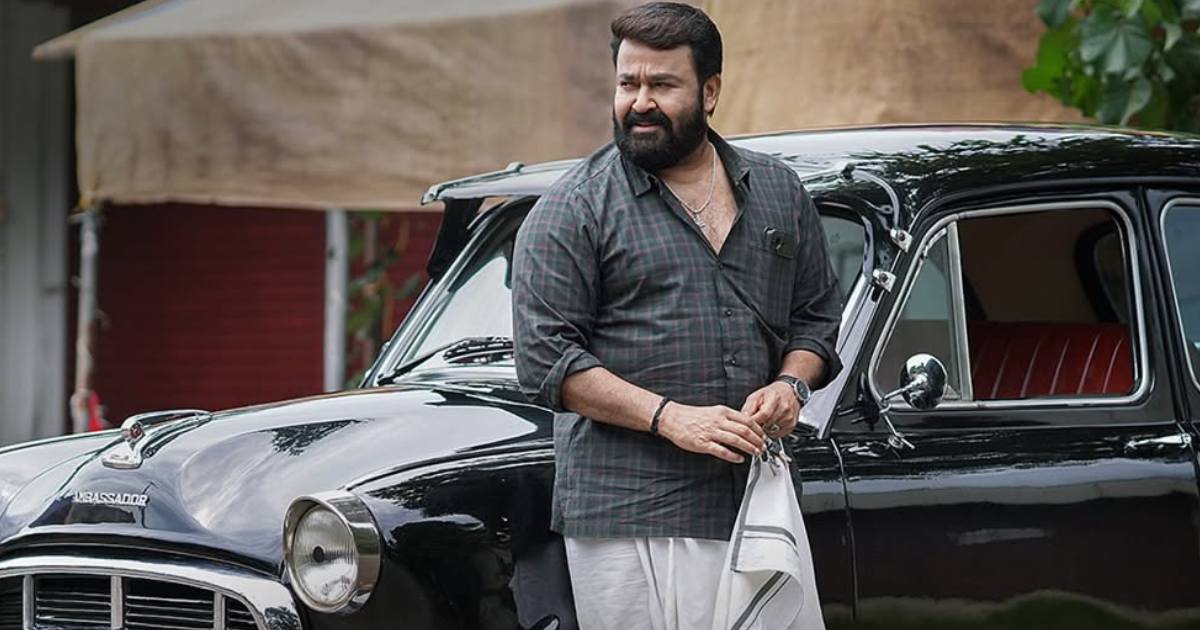
Saif chases the Red Sun, Jaideep steals hearts – Beyond Bollywood
Another Kookie Gulati crime thriller that promises a lot but doesn’t match the hype—or even its own pitch.
Rating: ⭐️⭐️💫 (2.5 / 5)
By Mayur Lookhar
“English is a funny language—even a conman is called an artist,” shoots Farrah, the damsel unimpressed by a jewel thief’s charms. The witty Rehan quickly replies, “Try stealing sometime—you’ll realise there’s art in it.”
Crime experts are better equipped to comment on the real, but in the reel world, a heist is often depicted as a piece of art—and over the years, its popularity has seen it acquire the status of a genre. While there have been plenty of heist dramas, for Hindi cinema, Vijay Anand’s Jewel Thief (1967) remains an eternal classic. In 1996, the legend Dev Anand returned for the sequel, but Return of Jewel Thief was a disaster.
58 years later, directors Robbie Grewal and Kookie Gulati have unearthed a Jewel Thief of their own. Vijay Anand gets a tributary mention, but Jewel Thief – The Heist Begins (2025) is no remake—it’s an intriguing heist drama where the principal characters come from the world of shadows.
Saif Ali Khan, the Nawab of Pataudi, plays the sexy, uber-cool, suave thief Rehan, who is hired by Rajan Aulakh (Jaideep Ahlawat) to steal the elusive Red Sun diamond, the crown jewel of African Prince Gamuno. It will be showcased at an exhibition in Mumbai soon. Rehan reminds Rajan that the odds are stacked against them, and the only time such a heist was pulled off was way back in 1995 in Los Angeles, when a certain Neil McCauley (Robert De Niro) did the impossible [in Michael Mann’s Heat (1995)]. Ah, don’t go looking for any inspiration in the Bollywood film. Rehan and Rajan, however, aren’t thick as thieves. Instead, it’s debt and destiny that have brought them together. The odds of Rehan stealing the Red Sun are just as difficult as Rajan keeping his 250-crore reward promise.
Rehan’s personal journey, his motto behind the heist, the meticulous planning, the trials, twists, and turbulence—on land and later in the skies—shape a heist drama so gripping in narration that Marflix, and later Netflix, couldn’t turn it down. Does the eventual product match the pitch? Well, let’s just say Robbie Grewal—and later Kookie Gulati, don’t quite manage to do justice to the promising plot.
Where does it go wrong? Let’s just say, the screenplay itself feels like a case of many a slip between the cup and the lip. The architect of it is one David Logan. A basic search reveals Logan to be an English writer and author, known for works such as Circus (2000), Lost Christmas (2011), and Harry Wild (TV series). Circus is a neo-noir centred around two lovers who are con artists. An Englishman writing a screenplay for a Hindi film—assuming it’s the same Logan as the Jewel Thief writer—is intriguing. The English writer’s X account, however, makes no mention of the Bollywood film. So, either it’s a different Logan, or the Hindi film is perhaps an adaptation of a screenplay by the Circus (2025) writer. Adding to the intrigue is that there’s no mention of story credits. Well, the Bollywood film’s makers are best equipped to shed light on their David Logan. Desi audiences, meanwhile, are more curious to know whether this heist drama is worth spending two hours on.

The answer is yes—provided you brush aside the film’s critical aspects. The challenging task, clever heist plots, able and appealing cast, exotic locales, high-octane action, and background score all come together to offer the average desi viewer a largely engaging experience. This is ideal single-screen content, but surprisingly, the makers opted for a straight-to-digital release. For us, it’s always been sensibilities, not the medium, that determine engagement levels.
While Jewel Thief is largely engaging and, overall, neatly written, the final product—the screenplay—somehow leaves you with mixed feelings. It’s a bit bizarre how a con artist reveals his heist plan to his employer, making you wonder: having known all the risks, does Rajan really need Rehan now? However, as always, a good con artist never reveals all his cards. Like its characters, even the audience is made to weigh the pros and cons of the heist plan—which the film does effectively, for the most part. Things move smoothly while the action stays on desi shores, but once it takes flight and shifts to Istanbul, that’s when logical thinking starts creeping in.

Actually, the first bit of cynicism stems from the lack of foresight by cop Vikram Patel (Kunal Kapoor), who rushes to the Mumbai international airport tarmac, only to watch the Skyfly flight take off in front of him. Only then does he send an image of the suspicious passenger to the crew via radio. Couldn’t Patel have sent the image and alerted the ground staff before boarding? Given how the airborne action takes on the tone of a near hijacking, how can Turkey allow such an aircraft to land in the middle of nowhere (a green field), with the lights provided by Rajan’s boss Moosa? While the Turkish police and Vikram do arrive at the spot, shouldn’t such a situation warrant the presence of the Turkish Army rather than just the police?
Hey, this is fiction, and clueless cops are integral to such heist dramas, but the unconvincing show by Kunal Kapoor weakens the character, making it hard to invest in his actions or decisions. Even after all these years, Kapoor’s acting is as flat as a cardboard cutout, lacking the depth or nuance needed to make his character believable.

Kapoor, though, is in a supporting role, and the onus lies on the protagonist/antagonist to drive this heist drama. However, our protagonist is not quite up to the mark. Saif Ali Khan is often good at emoting the personal side of his characters—here, a fractured relationship with his idealistic father (played by Kulbhushan Kharbanda) and wooing women with his charm offensive—but action has never been his cup of tea. Nevertheless, in the past, Khan has found some success with films like Race (2006), Agent Vinod (2012), and even Phantom (2015), which had its admirers. Ten years later, Khan, now 54, appears to lack the energy to play Rehan-like characters. This being his first release after the attempted robbery and attack on him, poor Saif Ali Khan must still endure conspiracy and publicity stunt theories.

It might be an elementary show by Khan, but Gulati and Grewal have an in-form powerhouse of a talent in Jaideep Ahlawat. Mind you, he isn’t sharp in his action moves, but when you’re blessed with such intensity, you don’t need to resort to acrobatics to impress. Just one look at Rajan is enough to warn you not to mess with this guy. Villains like Rajan thrive on fear, and before his enemies, even his loyalists must fear him. The painter loves inflicting pain—beating a mole to death with his bare hands, and then painting a canvas out of his blood. In his first meeting with Rehan, Rajan shoots his loyal pet Rottweiler, all because it took biscuits from Rehan’s hand. Perhaps the only one who needn’t fear Rajan is his big, burly henchman Salim. Ahlawat’s gruesome, yet virtuoso efforts deserve admiration. Saif Ali Khan chases Red Sun, but it’s Ahlawat who steals the show with his brutal avatar.
90s audiences will welcome the presence of a character named Moosa, first made famous in the Nana Patekar film Parinda (1990). In the Netflix film, Anees Moosa is played by Manipuri actor Dorendra Singh Loitongbam. Though not entirely fluent in Hindi, the Manipuri actor intimidates with his look and style.

We’re introduced to young actor Nikita Dutta. At first glance, she could be mistaken for Vaani Kapoor—there are even shades of Nargis Fakhri, with a bit more protein. Comparisons to Nora Fatehi aren’t entirely off either. Farrah is married to Rajan but treated more like a slave. Nothing is explicitly conveyed, but it’s clear there are sparks between Rehan and Farrah. The young actor has screen presence—particularly striking in the guise of a flight steward—and more importantly, she shows promise.
Technically, the film is sound, with a fine background score and playback music that carries Siddharth Anand’s influence. The early party track evokes a hint of Sher Khul Gaye (from Fighter) nostalgia. The closing track in the end credits is a delight. Despite its flaws, Jewel Thief: The Heist Begins has enough ingredients to keep the humble desi Netflix viewer hooked.
Video review to follow.
Publisher: Source link



